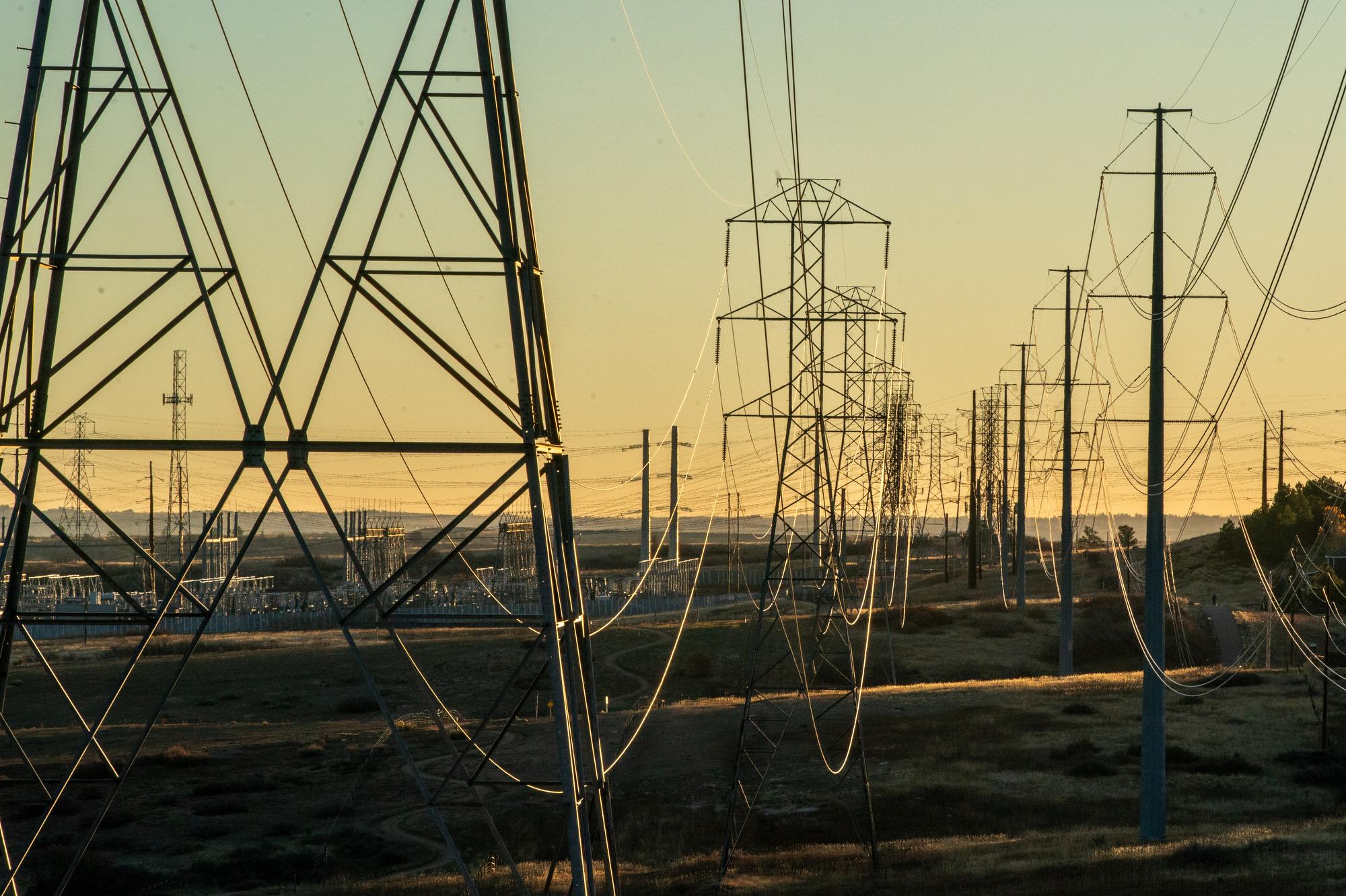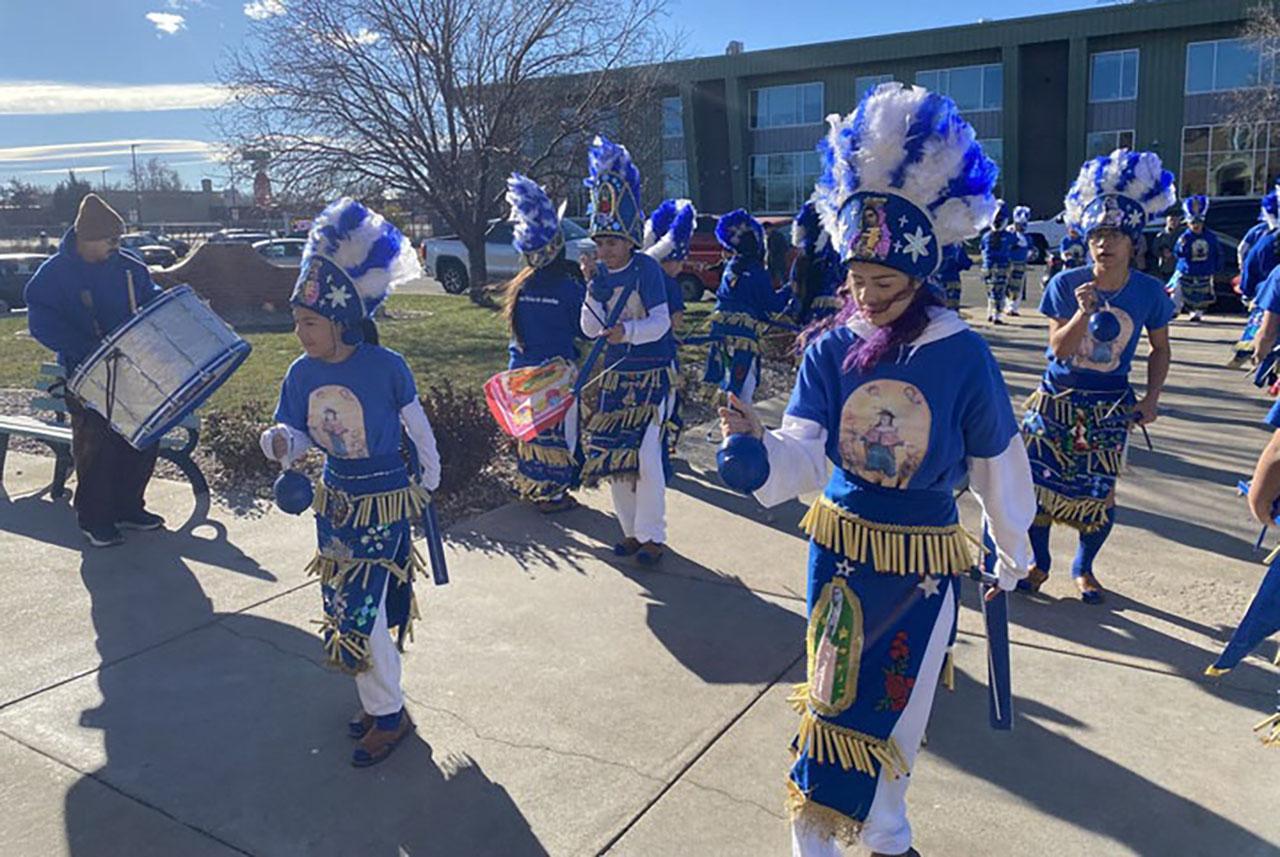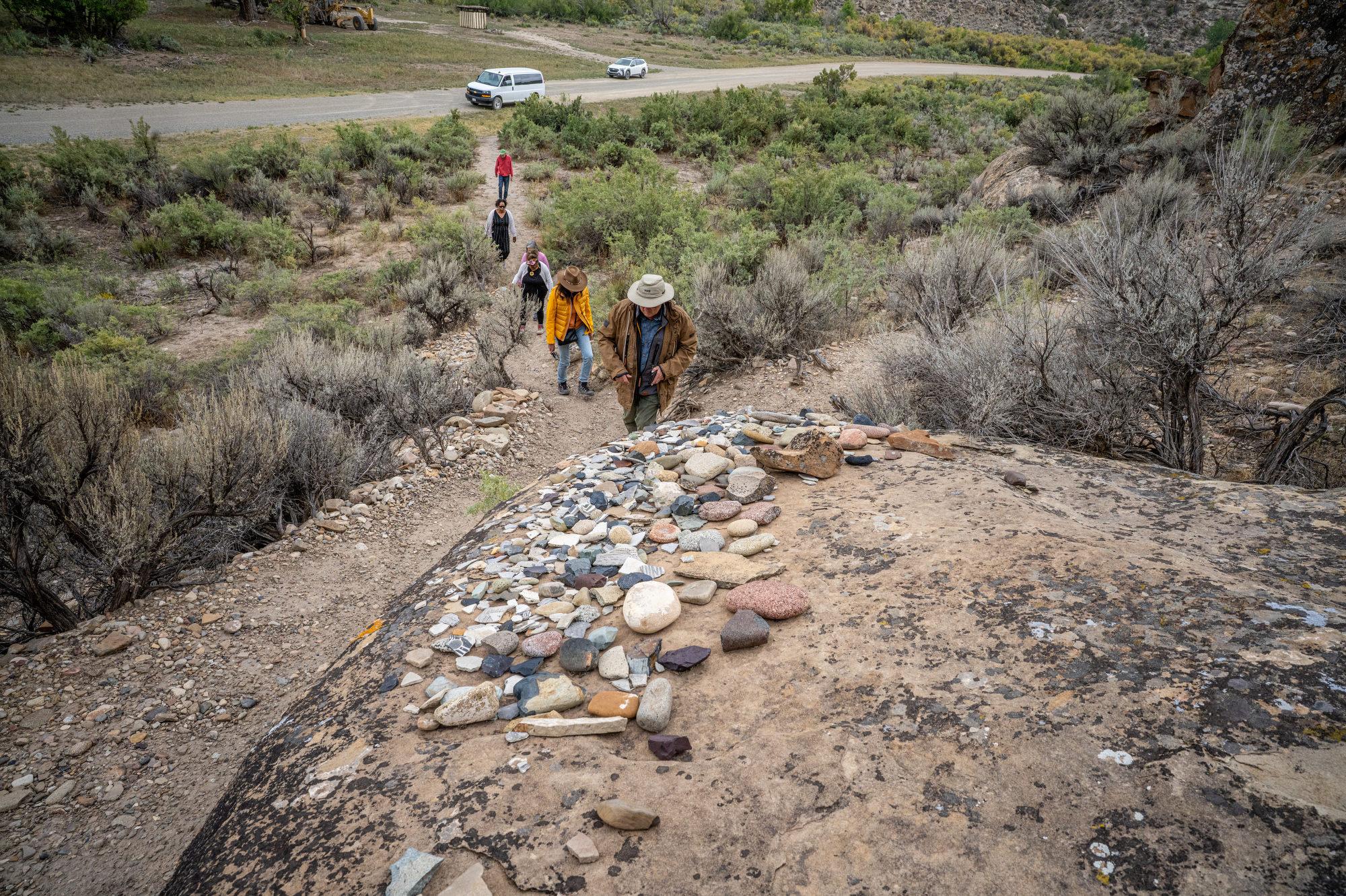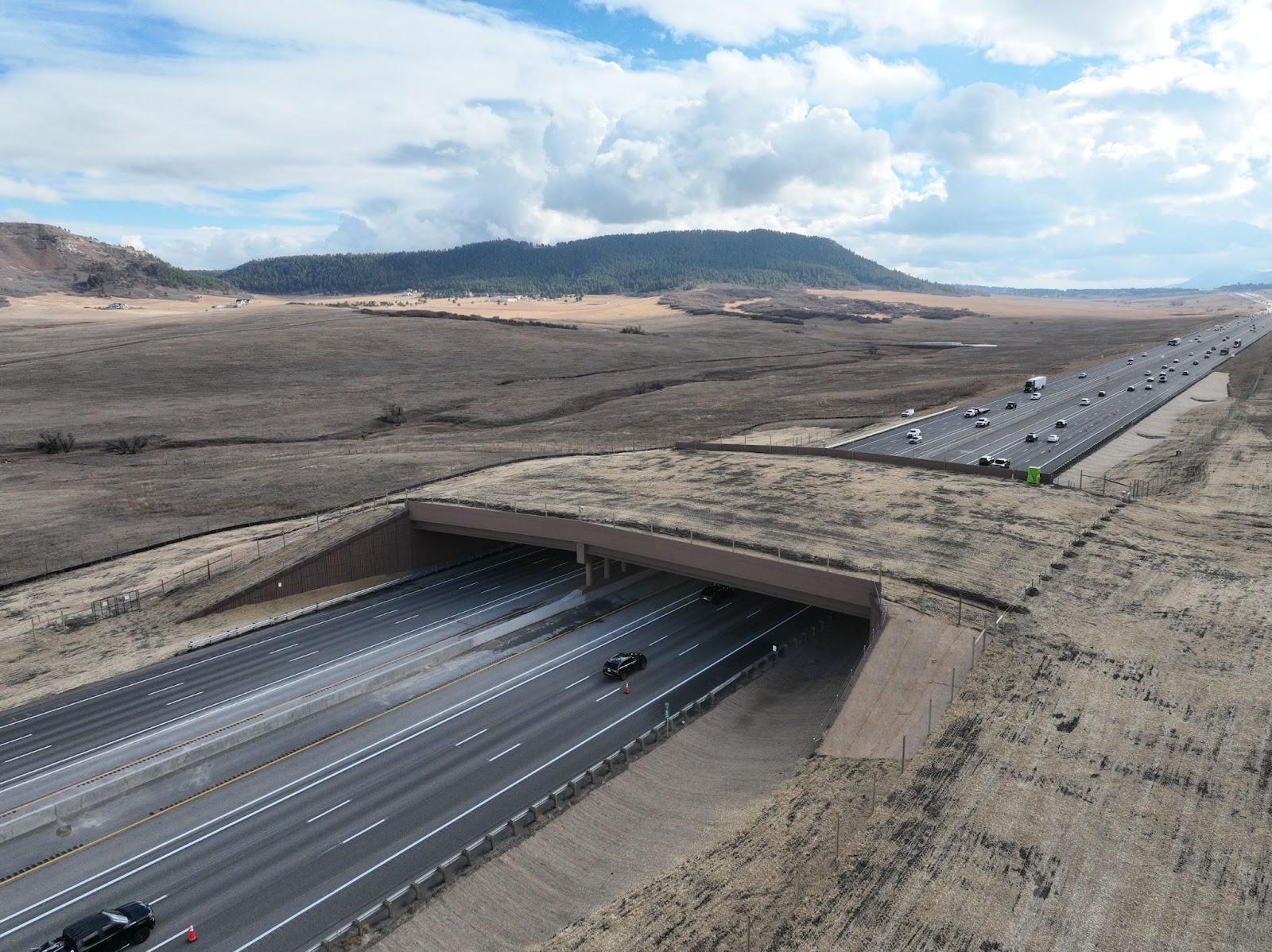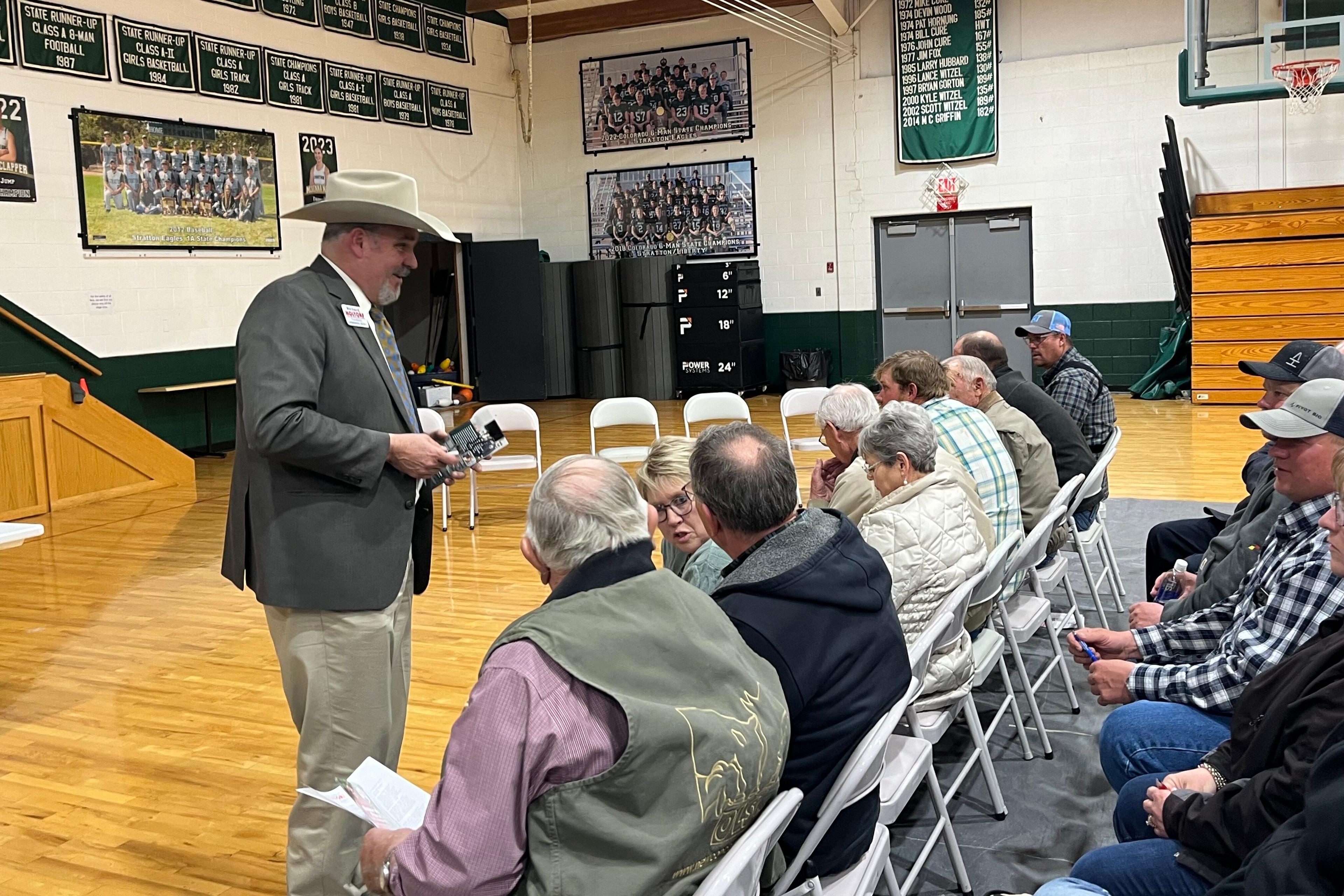
Some of the candidates running to replace GOP Rep. Ken Buck next Congress spoke with Republican voters in Stratton High School gym on Colorado’s Eastern Plains.
And a few of those working the room earlier this week were squeezing in another pitch.
“We have a vacancy now,” Logan County Commissioner and former state Sen. Jerry Sonnenberg reminded the crowd during his three-minute window. “I can start right away. Have an impact on the Farm Bill, have impact on so many other things.”
He wasn’t the only one. Closing out his pitch to the Republican activists, former State Sen. Ted Harvey also asked for their support at the vacancy committee.
“I'd love to have your support not only this Thursday … in the vacancy committee, but also on April 5 (at the GOP state Assembly).”
The Republican vacancy committee for the state’s 4th Congressional District is meeting tonight, March 28, to select a candidate to appear on the June ballot to complete Buck’s term in office. The Democrats will hold their vacancy committee meeting on April 1.
On June 25, all voters in the district will choose someone to fill out the unexpired term. Those voters will also get a primary ballot to select a candidate to run for the full term in the seat in November. Republicans hold a large advantage in the district, raising the stakes for tonight’s vacancy committee meeting and that party’s June primary.
Buck announced in November 2023 that he would not seek reelection, setting off a big primary contest among Republicans to replace him. Earlier this month, Buck surprised many by saying he would step down on March 22, sparking a special election to be held on the same day of the primary.
It also meant the crowded field of primary candidates had to make another decision: whether to run for the vacancy as they seek a full term in the seat.
State Representative Richard Holtorf decided to do both. He said it makes sense if you’re serious about the seat.
“I'm in this thing to win it all,” Holtorf said. “So everybody that's a serious candidate in my humble opinion, should be participating in the special vacancy selection.”
He says whoever comes out on top of the vacancy committee will have a boost going into the primary.
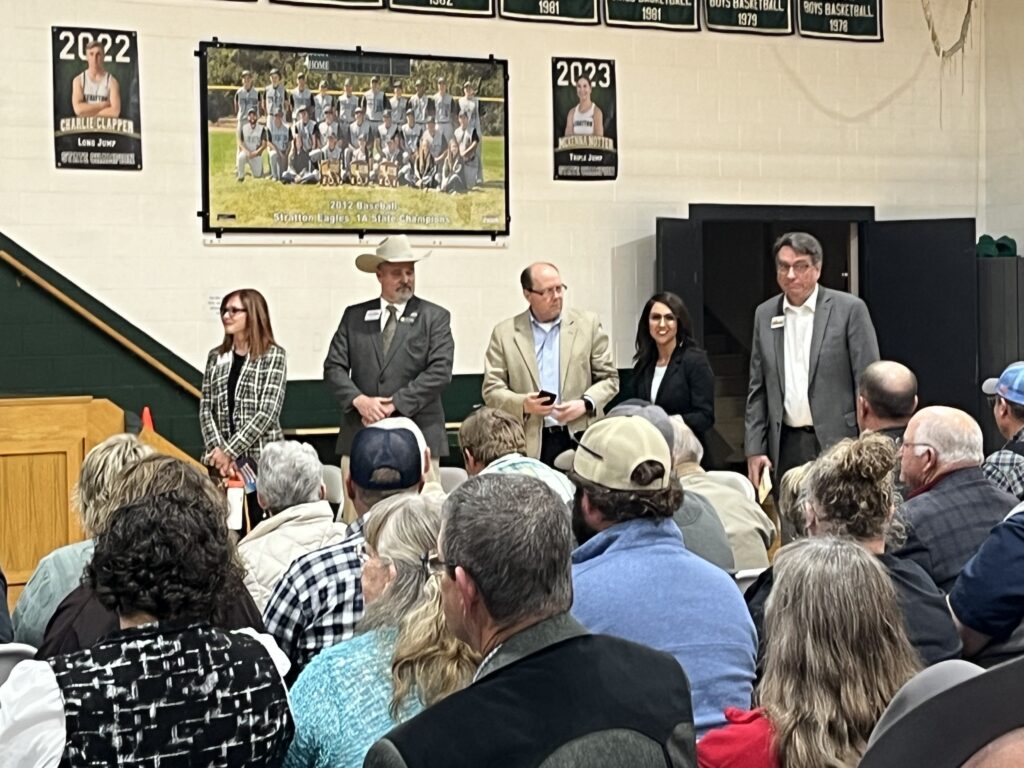
State Representative Mike Lynch was hesitant at first to run in both but agreed it makes sense and could give the winner a boost.
“Could give whoever wins that vacancy on Thursday could give them a little bit of a leg up,” Lynch said.
Like getting help from outside groups in the run-up to the election for the seat in this heavily Republican district.
However, some of the primary candidates decided to forgo the vacancy contest. And some hope the vacancy committee chooses a placeholder candidate who would not seek a full term - a possible outcome in tonight’s contest.
Republican Rep. Lauren Boebert, who moved from the 3rd Congressional District to run in the safer GOP seat, chose not to participate tonight and called the special election a “swampy backroom deal to try to rig an election.”
“Forcing an unnecessary Special Election on the same day as the Primary Election will confuse voters, result in a lame duck Congressman on Day One, and leave the 4th District with no representation for more than three months,” she said. If she had sought the vacancy nomination and gotten it, which was unlikely for this newcomer to the district, it would also have meant resigning her current seat representing the other side of the state.
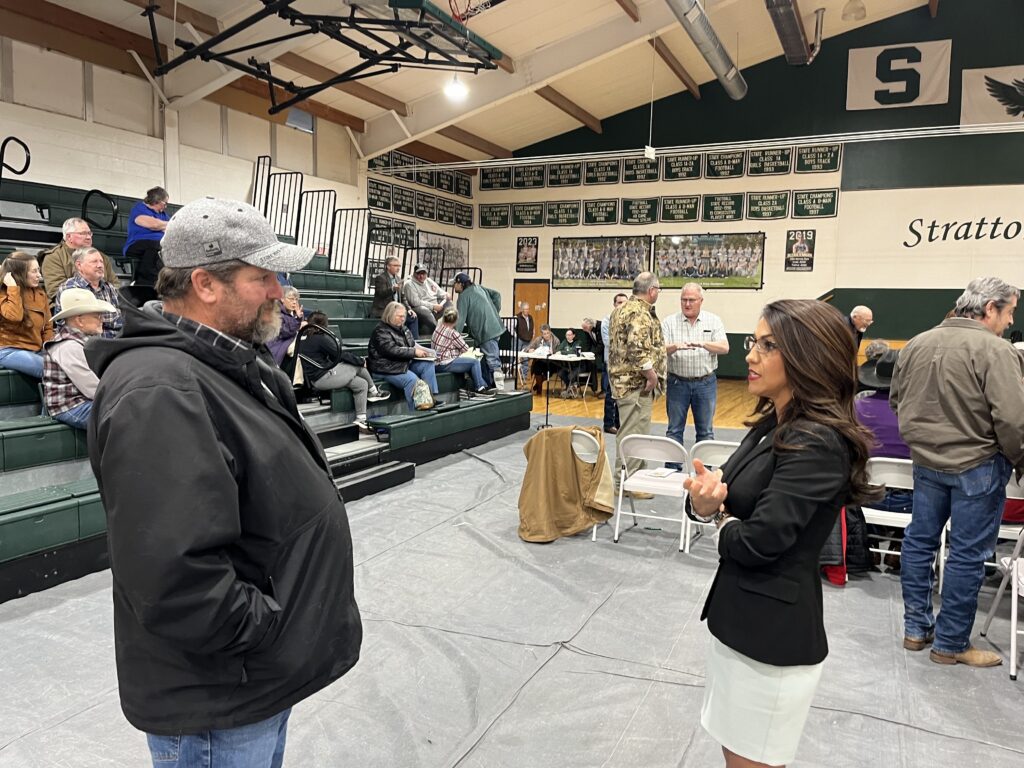
Another primary candidate, Deborah Flora, initially said she’d try for the vacancy. She changed her mind.
“The more we looked at it, we realized it's a fundamentally flawed process,” she explained at a campaign event. She’s from Douglas County, the area with the most population in the district. But the vacancy committee made up of 111 members gives almost equal weight to the less populated Eastern Plains. “It's not proportionally representative of the district and after having called all 111 people speaking to a significant number of them, they also felt that it was not a positive thing to overly influence the primary election.”
Flora is calling on the vacancy committee to pick a placeholder. She said it’s a “very simple solution that would allow the primary to continue…instead of being unduly tipped by 111 members.”
Laura Carno, executive director of Faster Colorado and a Republican political strategist, wrote all vacancy committee members with that request.
“Those people should fight it out in the primary election with nobody getting a benefit or a drawback from this whole special election. And so I'm offering the idea of somebody who can be a protector of the fourth congressional district.”
The person will vote and ensure that constituent services continue. (Buck’s former congressional offices are still open to handle constituent services.) And the other characteristics she wants to see.
“It's not somebody who is doing this to get good name ID to run for a different office,” Carno said. “It's not somebody who's going to go be a bomb thrower once they get to DC. It's somebody who is going to do the work of the people and then come back to their job.”
Carno, who is backing Flora, added it will also be less confusing for voters. Instead of possibly seeing one name on the vacancy ballot and the primary ballot on June 25, it will be different names. A couple of Republicans not seeking the nomination currently have been floated as possibilities. However, not all vacancy committee members are on board with this idea.
“We don't send people to Washington to be placeholders. We sent them there to do a job,” said Mike Benson, Chair of the Sedgwick County GOP and a Sonnenberg supporter. He added Buck put the district in a bad situation and leaders are doing the best they can to resolve it.
“I know there's a strong learning curve,” Benson said. “So let's get one of the candidates in there that plans on running for the position … And just get him in there and get him started.”
Harvey, also from Douglas County, calls the idea of a placeholder “embarrassing.”
He argued primary candidates have spent months getting out in front of voters, unlike any placeholder candidate.
“We've not vetted these people, that we have no idea who they are, and they all of a sudden want to come in and be elected to the United States Congress when we don't know how they're going to vote,” Harvey said. “We don't know what positions they're going to take or what values they bring before us.”
Sonnenberg concedes the special election and the primary election may cause some confusion, but it’s up to candidates to explain the difference to voters.
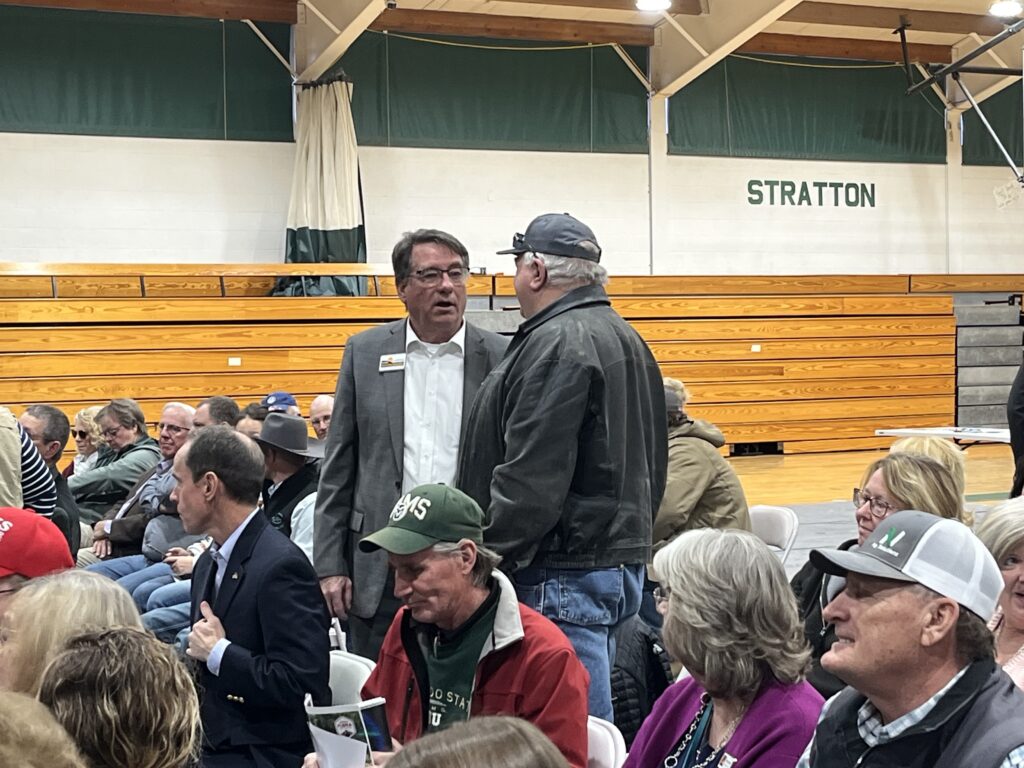
Republican voters Penny and Mark Burrows, who were at a Flora event in Douglas County, agreed that it seems straightforward.
“What is there to be confused about? It's an election and you vote,” said Penny.
“I know there is one event to select the appointee for the balance of the term and then a separate selection or vote for the actual representative for the next two years,” chimed in Mark.
Still, some voters see political calculations behind it all, like Gary Rhoades of Burlington who was at the Kit Carson County Assembly.
“I think what they're trying to do is freeze Boebert out, and that's the way they're going to do it,” said Rhoades.
Others counter that the one who benefits most from a placeholder is Boebert, who currently has the highest name recognition in the crowded primary field.
The harder hurdle for any of these candidates might be getting voters interested.
Back in the Stratton High School gym, Amy Bredehoft admitted she hasn’t been paying as close attention to the congressional race as she should. But, “I do think someone who’s running in the primary should be considered.”
Today's meeting begins at 5 p.m. in Hugo, Colo., southeast of Limon.

